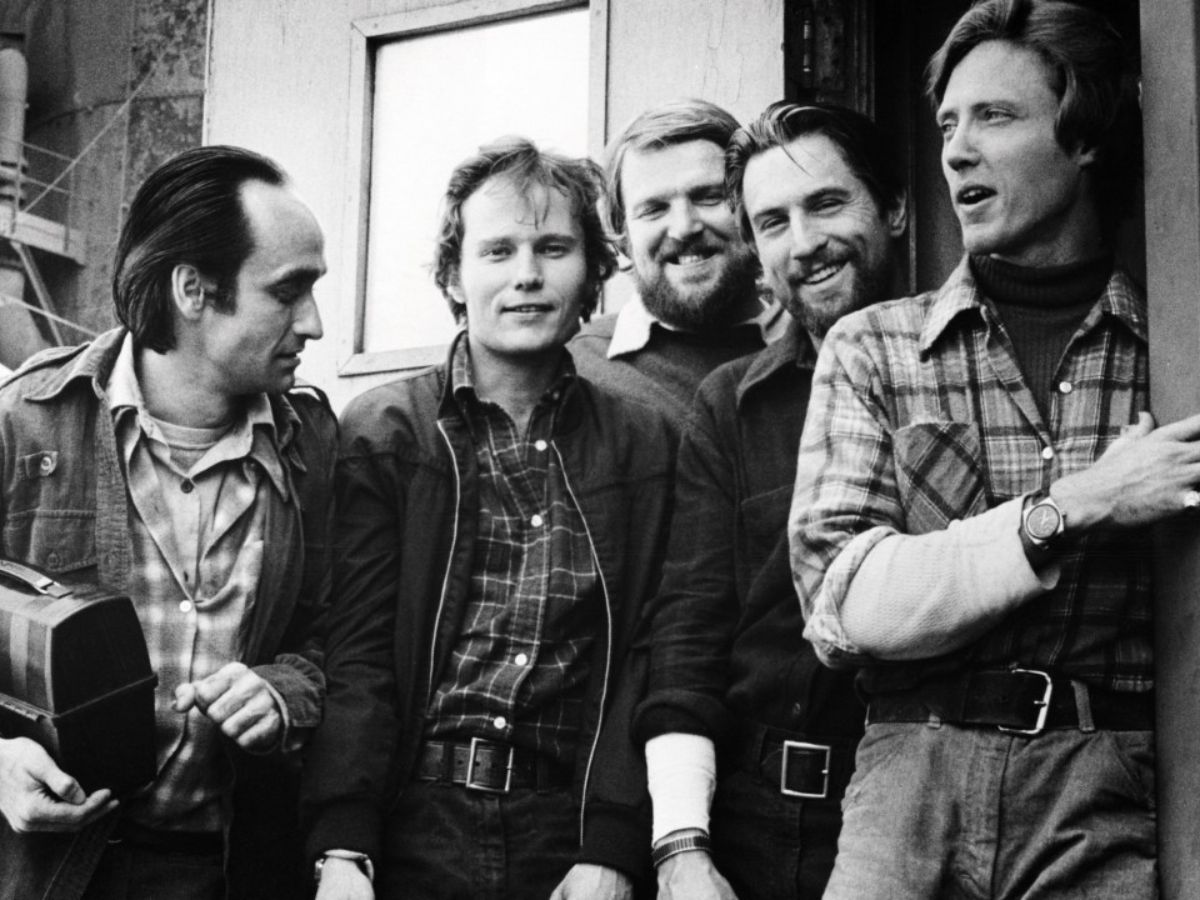
Cinema in the 1970s was a period of remarkable change and innovation, marking a significant shift in the way stories were told on the big screen. This era, often referred to as the "New Hollywood," saw the emergence of a new generation of filmmakers who were ready to push the boundaries of film artistry and narrative. From groundbreaking blockbusters to the rise of independent films, the '70s redefined cinema in ways that still influence filmmakers today. 1970s cinema was characterized by its daring exploration of social and political themes, a move towards more realistic and complex characters, and the introduction of new filming techniques. As we delve into 24 fascinating facts about this pivotal decade, you'll discover the iconic movies, legendary directors, and cultural shifts that made the '70s an unforgettable era in film history.
The Dawn of Blockbusters
The 1970s cinema landscape was a transformative period, marking the birth of the modern blockbuster. Jaws, directed by Steven Spielberg in 1975, is often credited as the first true blockbuster, setting a precedent for future films. This era saw directors taking bold risks, leading to the creation of films that remain iconic to this day.
-
Jaws not only terrified audiences worldwide but also became a monumental success, fundamentally changing how movies were made and marketed.
-
Following the success of Jaws, Star Wars debuted in 1977, further cementing the era's legacy as the birthplace of blockbusters. George Lucas's space opera became a cultural phenomenon, influencing countless films and spawning a franchise that thrives decades later.
Rise of New Hollywood
The 1970s were also known for the emergence of New Hollywood, a movement characterized by its departure from traditional filmmaking and the rise of a new generation of directors.
-
Directors like Francis Ford Coppola, Martin Scorsese, and Steven Spielberg were at the forefront of this movement, pushing the boundaries of storytelling and film techniques.
-
The Godfather (1972), directed by Coppola, redefined the gangster genre and is often hailed as one of the greatest films in world cinema.
-
Scorsese's Taxi Driver (1976) delved into the dark side of urban life, offering a gritty, realistic portrayal of isolation and violence.
Technological Innovations
The '70s witnessed significant technological advancements that enhanced the cinematic experience, making films more immersive and visually stunning.
-
The introduction of Dolby Stereo in 1975 revolutionized sound in cinema, providing audiences with an unprecedented audio experience.
-
The use of Steadicam, first introduced in 1976, allowed for smooth and stable handheld camera movements, opening new avenues for creative cinematography.
Cult Classics and Genre Films
This era was not just about blockbusters and technological innovations; it also saw the rise of cult classics and genre films that have maintained a loyal following over the years.
-
Rocky (1976), a low-budget film about an underdog boxer, became an unexpected hit, inspiring audiences and winning three Academy Awards, including Best Picture.
-
Horror films like Halloween (1978) set the standard for the slasher genre, influencing countless films and establishing a formula that is still used today.
-
Monty Python and the Holy Grail (1975) redefined comedy with its absurd humor and became a cult classic, adored by fans for its wit and originality.
International Cinema Flourishes
The 1970s were also a golden age for international cinema, with filmmakers around the globe producing works that challenged conventions and explored new narratives.
-
Italian director Federico Fellini's Amarcord (1973) offered a nostalgic look at life in Italy during the Fascist period, blending fantasy and reality in a visually stunning manner.
-
Japanese cinema saw the rise of visionary directors like Akira Kurosawa, whose Dersu Uzala (1975) won the Academy Award for Best Foreign Language Film.
-
In India, the parallel cinema movement gained momentum, with films like Sholay (1975) blending elements of traditional Bollywood with Western genres, creating a unique cinematic experience.
Social and Political Themes
Films in the 1970s often reflected the social and political turmoil of the times, addressing issues that were previously considered taboo.
-
All the President's Men (1976) explored the Watergate scandal, highlighting the role of journalism in uncovering political corruption.
-
One Flew Over the Cuckoo's Nest (1975), based on Ken Kesey's novel, critiqued the mental health system and societal norms, winning five Academy Awards, including Best Picture.
-
Network (1976) offered a scathing critique of the television industry and its impact on society, a theme that remains relevant today.
Legacy of 1970s Cinema
The influence of 1970s cinema extends far beyond the decade, shaping the film industry and popular culture in profound ways.
-
The innovative storytelling and technical advancements of the '70s set new standards for filmmaking, influencing generations of filmmakers.
-
Blockbusters like Star Wars and Jaws not only spawned franchises but also established a model for the film industry, focusing on high-concept films that appeal to mass audiences.
-
The rise of independent films and directors during this era paved the way for indie cinema, encouraging filmmakers to pursue their unique visions outside the studio system.
-
The decade's exploration of complex themes and characters added depth to cinema, moving beyond simple narratives to engage audiences on multiple levels.
-
With the advent of home video in the late '70s, films from this era became more accessible, allowing them to find new audiences and maintain their popularity over the years.
-
The preservation and restoration efforts for films from the 1970s have ensured that these cinematic treasures remain available for future generations to enjoy and study.
-
Film festivals and retrospectives continue to celebrate the groundbreaking work of '70s filmmakers, highlighting the decade's enduring impact on global cinema.
-
Ultimately, the 1970s cinema revolutionized the art of filmmaking, leaving a legacy that continues to inspire and entertain audiences around the world.
A Final Reel on 1970s Cinema
1970s cinema, with its groundbreaking narratives and iconic characters, left an indelible mark on film history. Directors from this era weren't afraid to push boundaries, exploring themes of rebellion, social change, and human complexity. Films like The Godfather, Star Wars, and Jaws didn't just entertain; they revolutionized storytelling, special effects, and audience expectations. Actors became legends, embodying roles that still resonate with fans today. This period also saw the rise of indie films, challenging mainstream narratives and introducing fresh perspectives. As we look back, it's clear that the '70s weren't just about disco and bell-bottoms; they were a golden age of cinema, shaping the way stories are told on the silver screen. For movie buffs and casual viewers alike, understanding this era offers a deeper appreciation of film's power to reflect and transform society.
Was this page helpful?
Our commitment to delivering trustworthy and engaging content is at the heart of what we do. Each fact on our site is contributed by real users like you, bringing a wealth of diverse insights and information. To ensure the highest standards of accuracy and reliability, our dedicated editors meticulously review each submission. This process guarantees that the facts we share are not only fascinating but also credible. Trust in our commitment to quality and authenticity as you explore and learn with us.


